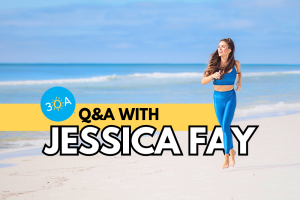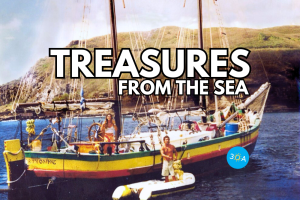

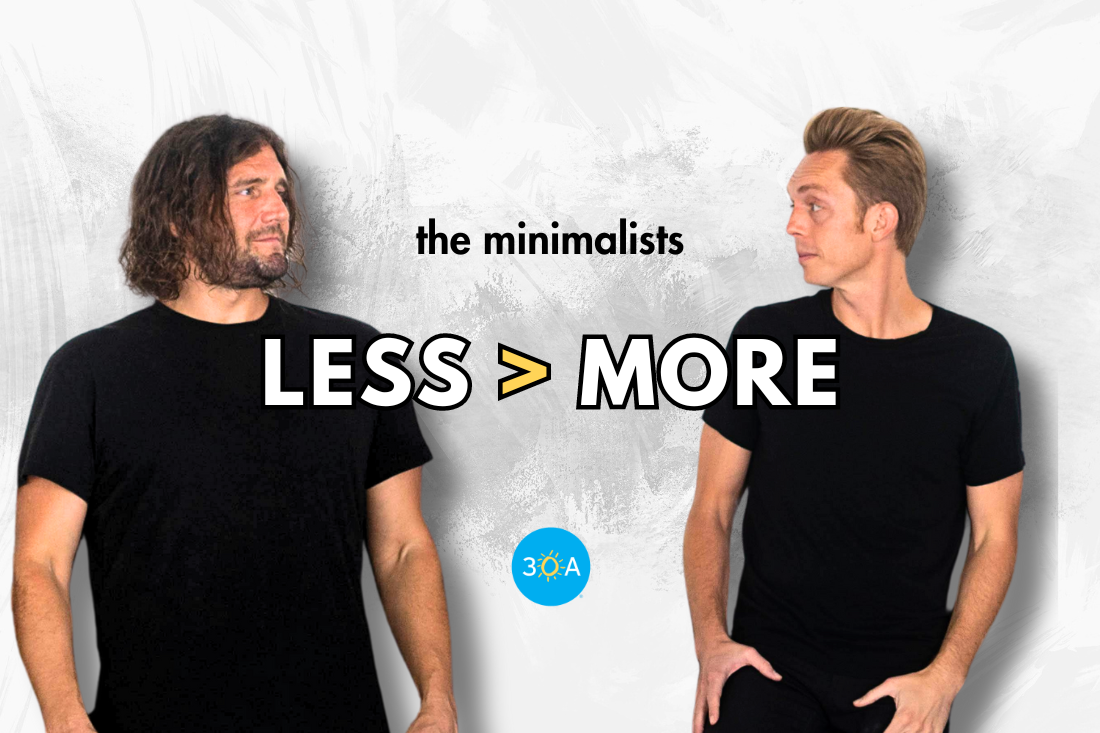
We’ve all heard the phrase “less is more,” but what if living with less really could bring more happiness? Joshua Fields Millburn and Ryan Nicodemus, Emmy-nominated Netflix stars, New York Times–bestselling authors, and The Minimalists co-founders are living proof of it. But before you start getting rid of your stuff, there are a few things to know to ensure you continue to keep your life decluttered and reap the benefits. We got the chance to chat with Millburn on all things minimalism and walked away inspired to adopt some of the principles of the minimalism movement into our lives.
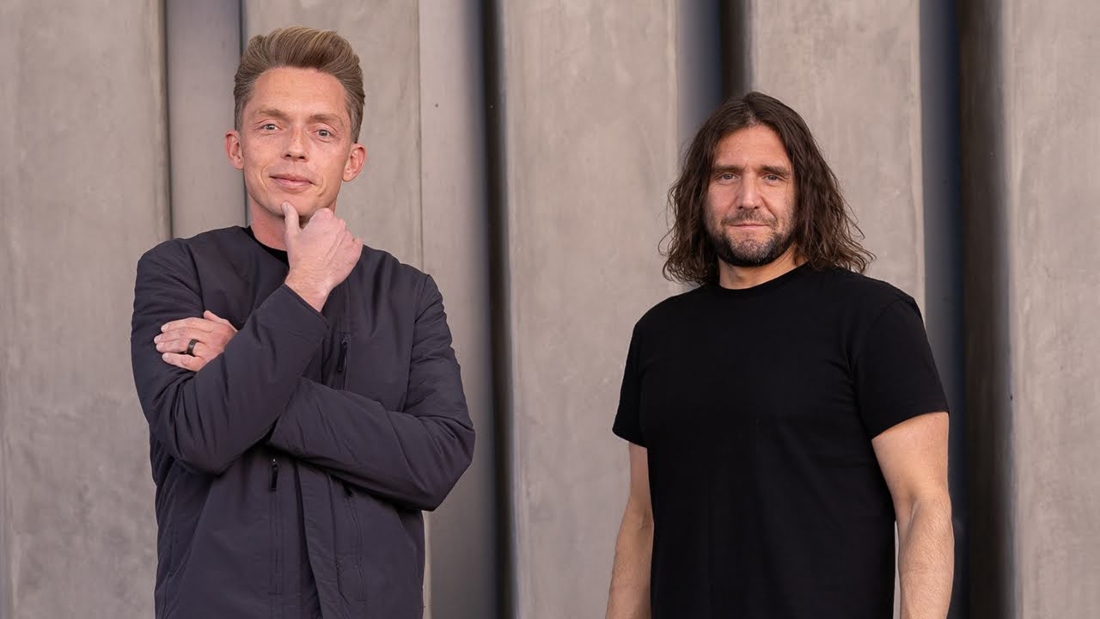
Credit: Danny Martinez
Millburn notes that this is the most common misconception about minimalism. “I’m not against stuff or consumption, but I think consumerism is the problem,” he said. “The ideology of consumerism is that if I buy more things, then I’ll be happier or I will be more complete. Of course, things don’t necessarily make us happier. Some things can enhance or augment our experience of life, but quite often, we have too much stuff.”
The average American household has around 300,000 items in it, which would be great if those things were making us happier, more content, and at peace. “Quite often it’s doing the opposite,” Millburn said. “It’s adding a whole lot of chaos. It turns out that all those material possessions in our homes, offices, cars, storage lockers, basements, attics, and everywhere else are a physical manifestation of what’s going on inside us.”
Translation? A lot of external clutter often translates to internal clutter––mental clutter, emotional clutter, spiritual clutter. So, decluttering the physical items in your life can help with the other types of clutter.
“Letting go of the stuff is never really about the stuff,” Millburn said. “It’s about letting go of the emotional or psychological tethers that we have to the stuff. In a way, it’s letting go of the narrative or the stories that we tell ourselves about those things.” He noted that saying it out loud can help with the decluttering process.
“I remember being terrified of letting go of some of my clothes, but then I would say it out loud, ‘I’m afraid to let go of this t-shirt,’ and I realized how silly that sounded,” he said. “I was telling myself a story that didn’t actually comport with reality. When you boil it down, there’s nothing to be afraid of with respect to letting go of a useless item.”
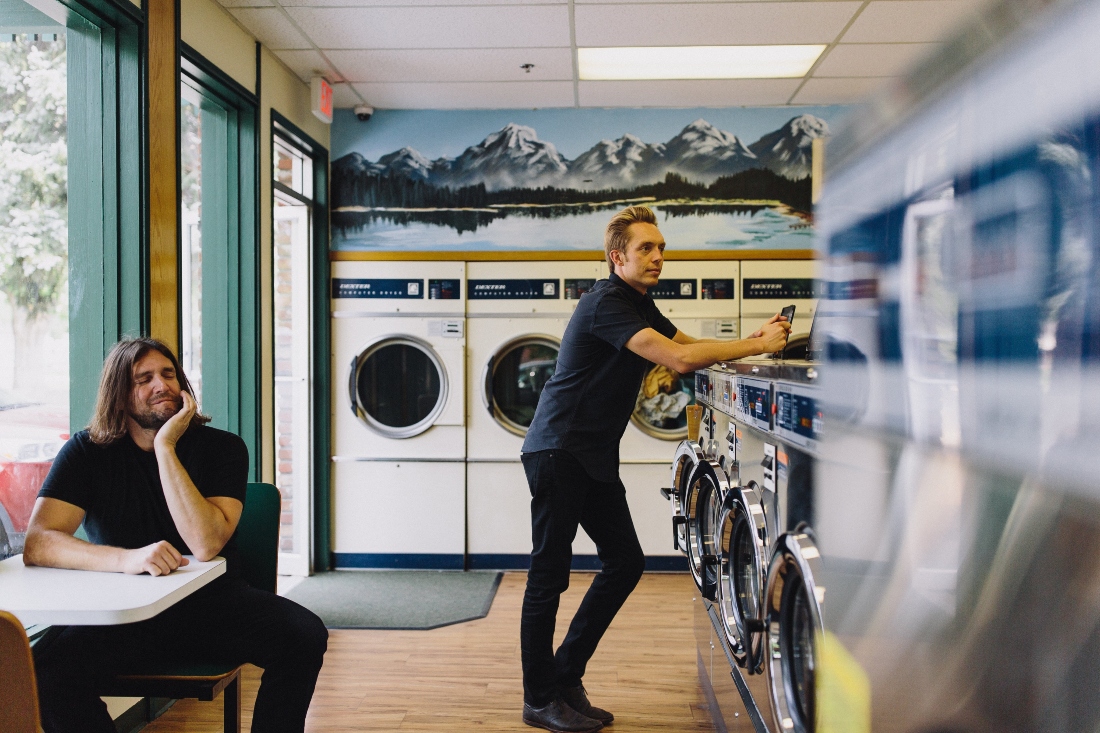
Credit: Joshua Weaver
It turns out that junk drawers and stacks of unread mail aren’t the only clutter in our lives that we need to address. “There’s all these other forms of clutter in our lives that are really pernicious because they appear to be virtuous at first,” Millburn said. Calendar clutter is a common one.
“Busyness is a status symbol in our society,” he said.
“When I say I’m busy (the worst 4-letter word in the English language), what I’m really saying is my life is out of control; everyone else’s urgent task has now become an emergency for me.”
“I’m supposed to respond immediately, I’m supposed to say yes, yes, yes, and when I do that, I inadvertently end up saying no to the most important things in my life.”
Digital clutter is another big one. Millburn likens mindless, incessant scrolling on social media to smashing your hand with a hammer after using it to hang up family photos––useful tools that have become clutter because we feel compelled to continue using them beyond their usefulness. And clutter, Millburn explained, is anything that gets in the way. “Your smartphone can be a great tool, and there’s nothing wrong with social media, but if it’s getting in the way of what is truly important to me, then I’ve got my priorities flipped upside down.”
In an effort to be more present, Millburn does not have social media or email apps on his phone. “I strip my phone down to where it’s useful, but it’s no longer using me the way that it used to,” he said.
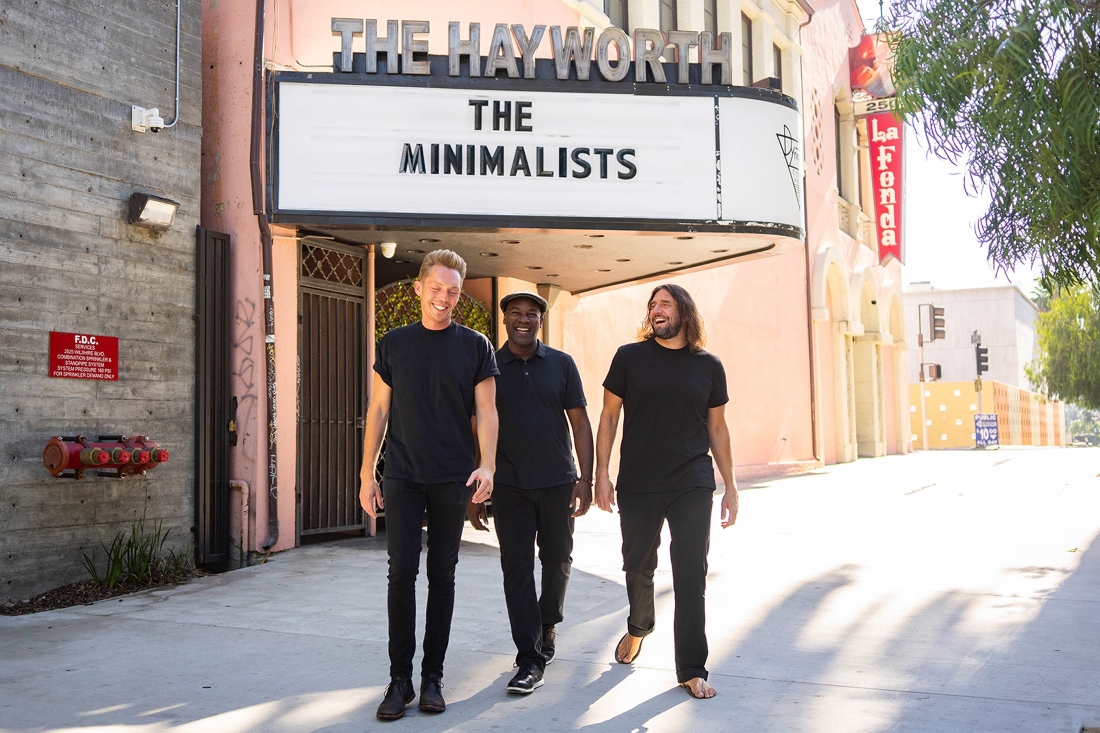
One of the 16 rules for living with less in the Minimalist Rulebook (which can be downloaded for free from The Minimalists website) is the No Junk rule.
“We call them rules but they’re really adjustable boundaries,” Millburn said. “The No Junk rule works for everyone and really helps you understand what is adding value to your life.” This rule says that everything you own can fit into one of three categories: essential, nonessential but value-adding, or junk. Essentials are the necessities: food, shelter, clothing. Nonessential but value-adding items (the category Millburn finds the most interesting, where people get the most introspective) enhance your life in some way.
“I can live without my couch, coffee table, dining table, and office chair, but I don’t want to deprive myself,” he said. “I have nonessential things that enhance my life. They’re totally negotiable and I’m willing to let them go; however, I hold on to them as long as it makes sense.”
Nonessential but value-adding items can change as the years (or decades) go by. “I’m constantly asking myself, ‘Does this add value to my life?’ and if not, I’m willing to let it go.”
Most of the things we own tend to fit into the third category: junk. “Junk is clutter and often masquerades as value-adding,” Millburn said. “Sometimes we’ll call them ‘just-in-case’ items, things we hold on to just in case we might need them someday in some nonexistent hypothetical future.” This practice creates a lot of excess in our lives. In the No Junk rule, you hold on to everything that’s truly adding value to your life (even if it’s nonessential) and let go of everything that is junk.
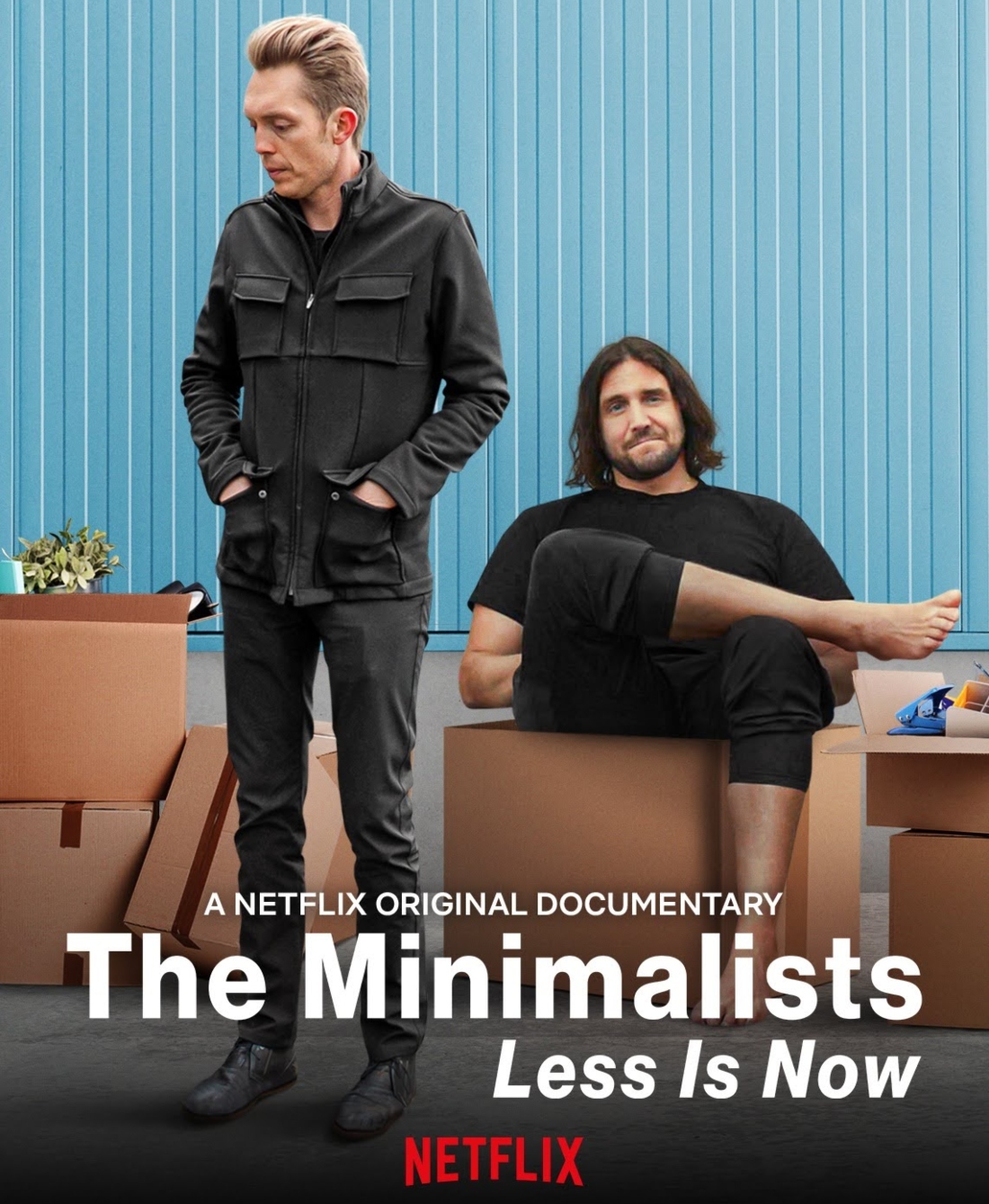
Ensuring that everything you have in your space actually adds value can really set the tone for your living space. “With minimalism, the things we don’t add to a space are just as important as the things we add,” Millburn said. “When I think of my living space, I consider how I want it to feel when I return home at night—calm, orderly, inviting—and then I subtract anything that adds chaos. If a thing doesn’t amplify the peace—be it a piece of furniture, a stack of mail, a closet stuffed with boxes, or a drawer full of junk—I let it go to make room for what’s important.”
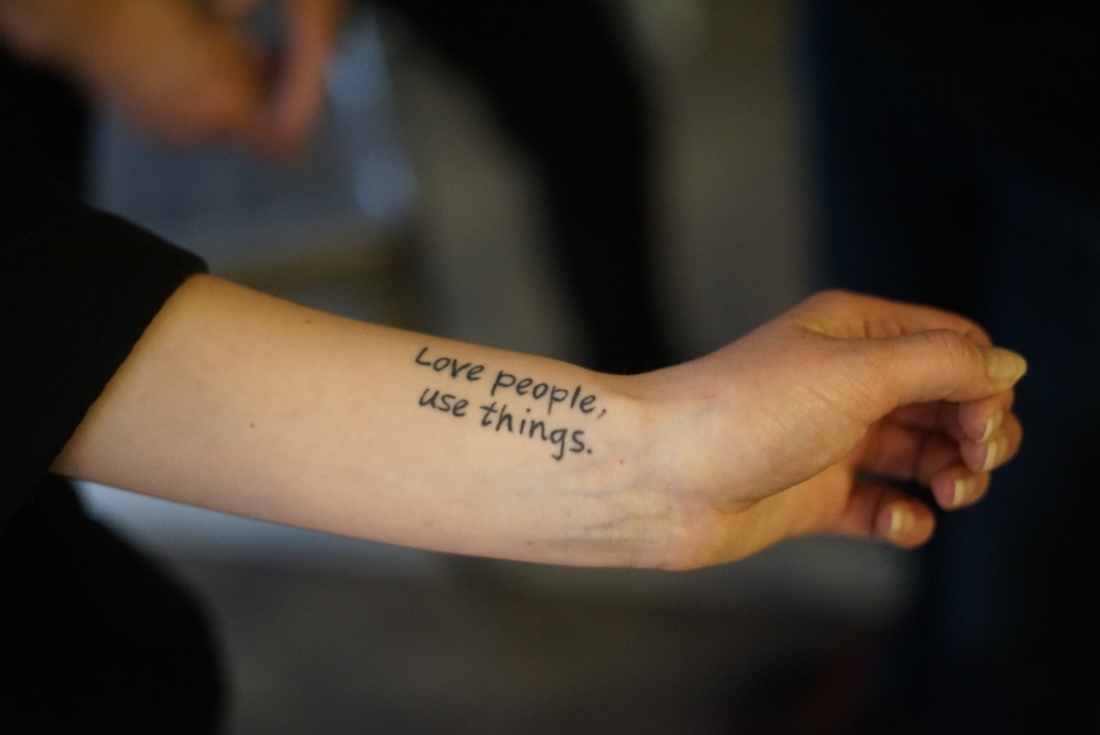
Credit: Jordan Moore
The Minimalists: Less Is Now (The Minimalists’ second Netflix documentary) highlights everyday people who have benefited greatly from simplifying their lives, letting go of what was in the way and making room for what’s important, and figuring out what “enough” looks like to them.
“I wanted to show that there’s nothing wrong with material possessions, but having too many material possessions leads to too much anxiety, depression, and restlessness,” Millburn said. “It leads to an overwhelming life, a busy life, a life that is missing peace and tranquility, a life that is out of control in so many ways.”
The lesson here is that happiness is more readily attainable than we may think.
“We can’t improve our lives through adding more stuff and more commitments,” Millburn said. “The way that we improve our lives is actually through subtraction, not through adding. The happiness that we’re seeking? It’s not out there; it’s already here. It’s just been covered up by a bunch of excess stuff, excess commitments, excess toxic relationships, and other kinds of excess.”


